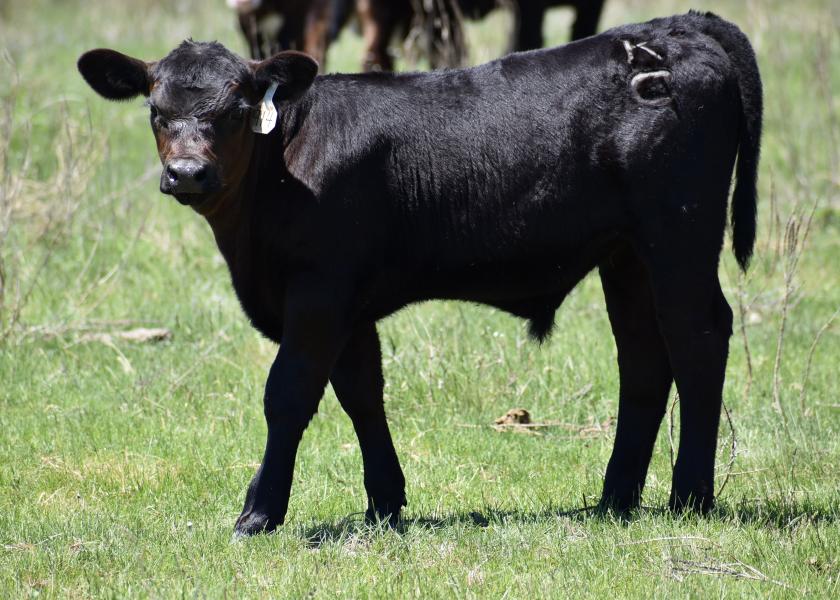Why Do Healthy Calves Get Summer Pneumonia? Here's How to Best Protect Your Herd

Why do some of your best looking, five-plus month old calves end up with summer or pre-weaning pneumonia?
The answer has been sought by cattle ranchers for years.
In many cases, these calves would not be considered ‘high-risk,’ as the calves are still with their mother are not undergoing stress of a changing environment, diet or location. Yet, an outbreak may occur.
Though a specific cause is yet to be determined, Bob Larson, DVM, professor at Kansas State University (KSU) explains his thoughts on why these events occur on a KSU Beef Cattle Institute podcast.
Colostrum
As calves age, the protection from colostrum declines. Yet, these four to six-month-old calves are young enough and have not yet developed their own immunity to some of the viruses and bacteria that can cause respiratory disease, Larson explains.
This also validates the reason as to why some of the biggest, oldest calves are affected. Their protection from colostrum is furthest removed.
As ‘frustrating’ as this problem can be in cow-calf herds, Larson says, “it doesn’t really act like traditional respiratory disease. We certainly don’t see it as commonly and it’s not very predictable.”
Summer pneumonia is also often associated with Coronavirus, which contributes to traditional bovine respiratory disease (BRD).
“One in five herds will have a problem with pre-weaning BRD, and within those herds, about 15% max of the calves are affected,” says Brad White, DVM, professor and director of KSU's Beef Cattle Institute.
Vaccination Age and Type
As many calves receive their first respiratory vaccine at a young age, Larson explains the effectiveness is less than that of older animals.
“So, that animal, by the time he's seven or eight months of age, he'll have a nearly adult type of response to vaccines, which is what we want, a really good response. When he's really young, at two months of age, we don't tend to see as good of a response but it's not zero,” he says.
Though not 100% effective, vaccines at any age might be the best tool for mitigating the risk against summer pneumonia.
However, keep in mind, “not all vaccines are the same, both with what they contain, viruses or bacteria, and then type, modified live or killed,” White notes. “Work with your veterinarian to come up with a plan that works for your operation.”
Outside Risk Factors
Another piece of the puzzle to consider are risk factors that may increase chances your calves contract pneumonia.
Some risk factors include:
• Exposure to outside calves, like stockers
• Grazing next to other herds
Though there is no magic solution to preventing pre-weaning pneumonia in your herd, ensuring colostrum intake at birth, vaccination and mitigating outside risk factors are some of the best management practices to protect against an outbreak this summer.







